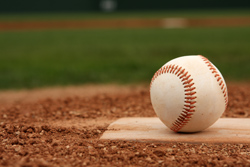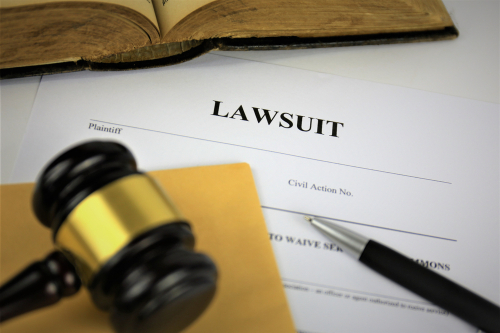Fans of baseball will be missed this upcoming season—but not their legal headaches

Image from Shutterstock.com.
The national pastime, played in empty stadiums, at long last gets underway on Thursday. The cheer of the crowd will be sorely missed. But the absence of fans will also spare Major League Baseball teams from legal headaches that can arise when the seats are filled.
Nearly 100 years ago, a Georgia appeals court concluded that Atlanta’s professional baseball team did not have to compensate a fan who was injured when the team’s pitcher came into the stands and attacked him.
The fan, displeased with the player’s performance, had yelled “give us another pitcher.” The court in Atlanta Baseball Co. v. Lawrence (1928) concluded that the team could not have anticipated or foreseen that the player would do what he did.
During a June 1960 game involving the Raleigh Caps, a minor league affiliate of the Boston Red Sox, the umpire made some calls that caused the Caps manager to charge onto the field and protest boisterously. After the game, a Caps fan attacked the ump.
The North Carolina Supreme Court in Toone v. Adams rejected the umpire’s claim the he was entitled to compensation because the manager had encouraged the fan’s conduct: “It would be an intolerable burden … to saddle [managers] with responsibility for the actions of every emotionally unstable person who might arrive at the game spoiling for a fight and become enraged over an umpire’s call which the manager had protested.”
In 1983, John Walsh alleged that he was injured while being ejected from a St. Louis Cardinals game for refusing to lower a sign, distracting to fans, that read “Trade Whitey” (presumably, a reference to team manager Whitey Herzog). A jury ruled against him in his suit against the team. The Missouri appeals court, in Walsh v. St. Louis Natl Baseball Club Inc. (1992) affirmed.
Even after fans leave the ballpark a team’s troubles may not be over. A California appeals court found that the Los Angeles Dodgers were not liable for injury suffered by a fan who was attacked in the stadium parking lot after remonstrating with two drunks – one vomiting and the other urinating on his car. The court held in Noble v. L.A. Dodgers (1985) that the team was not at fault for failing to provide adequate security.
 Image from Shutterstock.com.
Image from Shutterstock.com.
Empty seats will also save teams from the barrage of lawsuits by fans injured by foul balls and flying bats. Such suits have long been pursued by fans and almost always without success.
As early as the turn of the century courts have concluded that, by choosing not to sit behind the protective netting available, fans assume the risk of being struck by a foul ball. This kept a fan, injured at a professional ball game in Kansas City, from recovering.
In Crane v. Kansas City Baseball Exhibition Co. (1913), the Missouri Court of Appeals noted that plaintiff recognized that “baseball is our national game, and the rules governing it and the manner in which it is played and the risks and dangers incident thereto are matters of common knowledge.”
And balls and bats are not the only projectiles that can keep teams’ lawyers busy—especially it seems in Kansas City. In Coomer v. Kansas City Royals Baseball Corp. (2014), the Missouri Supreme Court concluded that the team could be liable when its mascot, Sluggerrr, an adorable furry lion, tossed a hotdog—behind his back—into the stands. This was part of Sluggerrr’s between-innings hotdog launch. The wiener hit a fan in the eye, and he suffered a detached retina.
Keeping people out of stadiums can also spare players from legal hassles. Late last month, the Court of Appeals of Wisconsin ruled that Jonathan “J.D.” Davis, a player for the Lancaster JetHawks, a minor league affiliate of baseball’s Colorado Rockies, could not be sued for an automobile accident because the legal papers had not been properly served on him.
A process server, from 20 feet above in the stands, had tossed a manila envelope near Davis while he was walking down the right field line. While doing so, the process server yelled “you have been served.” The court in Ewing v. State Auto Insurance Company concluded that this technique did not cut it to serve the now third baseman for the New York Mets.
Litigation—the other national pastime—will be quieter this season.
See also:
ABAJournal.com: “Federal judge grants lawyer’s deadline extension so he can ‘stay up late watching baseball’ with his son”
ABA Journal: “This Tennessee attorney is having a ball owning a baseball team”
ABAJournal.com: “Revenue sharing poses potential roadblock to Major League Baseball restarting, sports lawyers say”

Randy Maniloff is a lawyer at White and Williams in Philadelphia and an adjunct professor at the Temple University Beasley School of Law. He runs the website CoverageOpinions.info.



